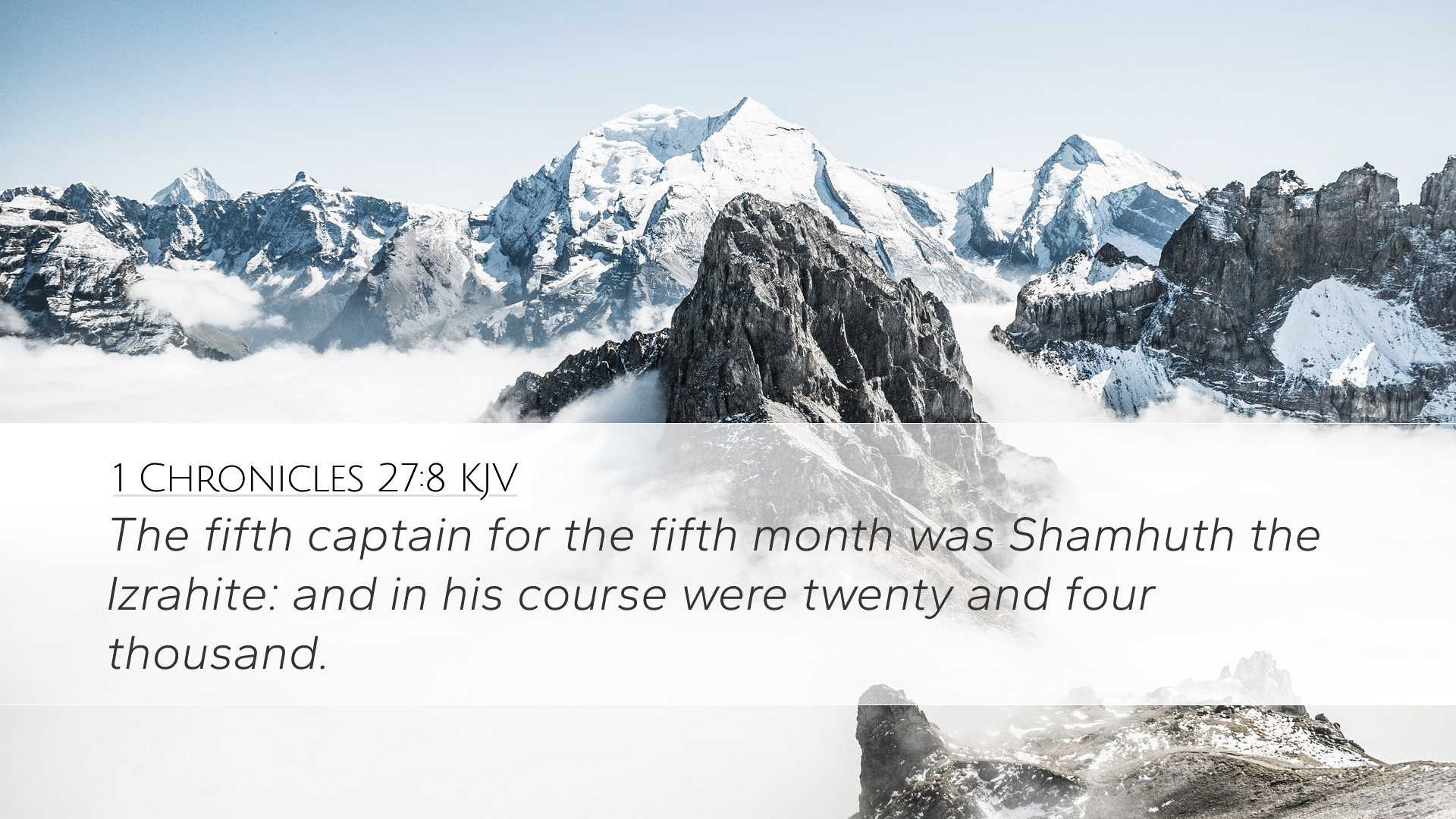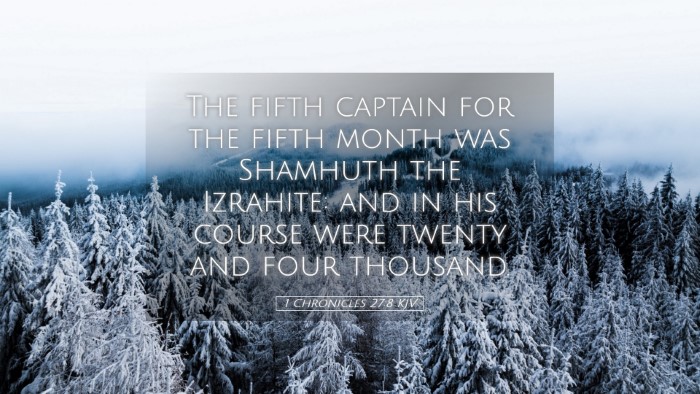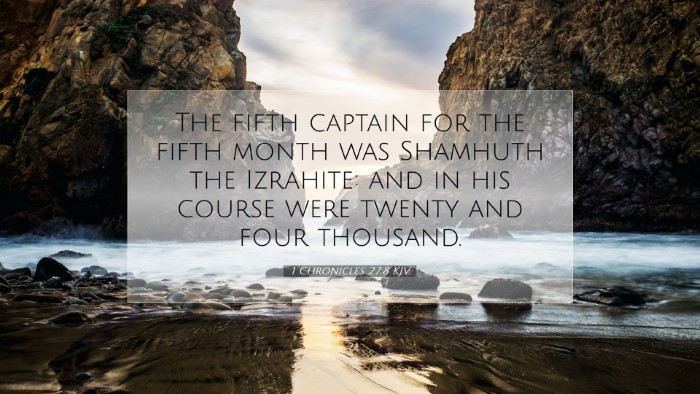Commentary on 1 Chronicles 27:8
This verse reads: "The fifth captain for the fifth month was Shamhuth the Izrahite: and in his course were twenty and four thousand."
Contextual Overview
1 Chronicles 27 is part of a detailed enumeration of David's military leaders and their respective divisions, a significant aspect of the organization of his kingdom. This chapter provides insight into the structure and authority established during David's reign.
Significance of Military Organization
The mention of military captains serves not only as a record of leadership but also reflects the importance of order and preparedness in David's administration. Each of the twelve captains represents a month in which their division of troops would serve, indicating careful planning and a systematic approach to governance.
Insights from Matthew Henry
Matthew Henry notes that Shamhuth, the fifth captain, indicates the organized and rotational nature of military leadership (Henry, Commentary on the Whole Bible). This system ensured that each division was adequately prepared to serve, enabling David's military to maintain strength across the year. Henry emphasizes the necessity of strong leadership and proper scheduling in managing resources effectively.
Insights from Albert Barnes
Albert Barnes suggests that the particular mention of Shamhuth as the captain reflects on his significant role and the trust David placed in him (Barnes, Notes on the Old Testament). This, according to Barnes, not only illustrates Shamhuth’s personal merit but also serves as an example of David's ability to recognize and delegate authority to capable individuals, thereby strengthening the military's operational efficacy.
Insights from Adam Clarke
Adam Clarke expands on the idea of division within the military ranks, explaining that such arrangements were typical in ancient monarchies for maintaining order and readiness (Clarke, Commentary on the Bible). Clarke draws attention to the discipline involved in these divisions, suggesting that the presence of significant numbers—twenty-four thousand in Shamhuth’s course—showcases the might of Israel's army under David’s leadership.
Theological Implications
The military structure outlined in this chapter also suggests theological themes about God’s sovereignty and the ordering of life. Just as David organized his forces to display strength and readiness, believers are called to live with intentionality and purpose, recognizing that every action is under the sovereign oversight of God.
Lessons for Pastors
- Leadership Structure: The importance of establishing a clear leadership structure within the church, mirroring the military organization of David’s time.
- Delegation: The necessity of identifying and appointing capable leaders within the congregation to fulfill different roles effectively.
Lessons for Students and Theologians
- Historical Context: Understanding the significance of military organization in ancient Israel enhances the comprehension of the socio-political climate during David's reign.
- Biblical Principles: Extracting principles of order, preparation, and leadership that resonate throughout Scripture and apply to both personal and communal settings.
Conclusion
In summary, 1 Chronicles 27:8 invites readers to reflect on the importance of organization and leadership in both military and spiritual contexts. Through the lens of public domain commentaries, we gain a multi-faceted understanding of how David’s model can be applied to contemporary church leadership and individual believers' lives. This verse serves as a reminder that just as Israel was organized under God’s chosen king, so too must the church reflect order and readiness under Christ, our King.


